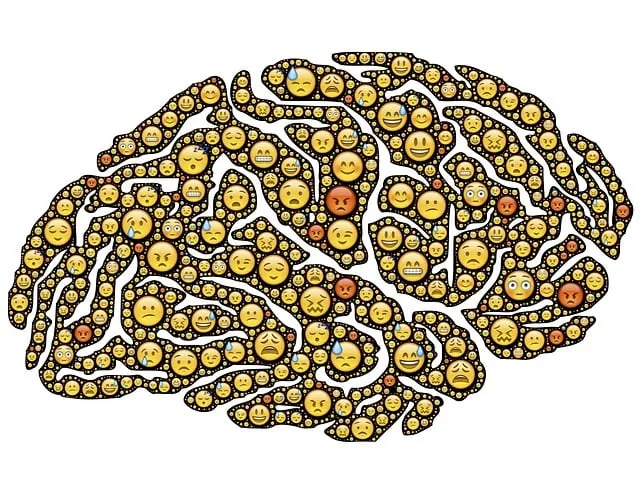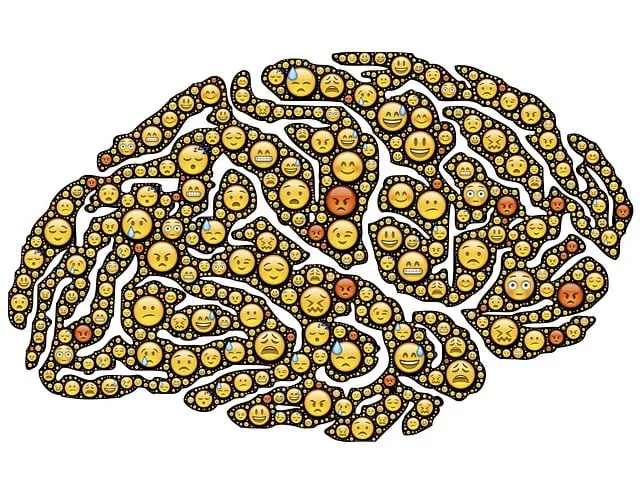Understanding mood regulation involves a complex interplay of neurochemicals, past experiences, and environmental factors within the brain. Kaiser in Centennial offers skilled professionals who guide individuals through strategies like burnout prevention, resilience building, and coping skills development. Their evidence-based practices, including Cognitive Behavioral Therapy (CBT) and mindfulness programs, help manage conditions like depression and anxiety. Lifestyle adjustments such as consistent sleep, regular exercise, and a nutritious diet are also crucial for maintaining emotional balance. Kaiser's therapists and trauma support services in Centennial provide valuable assistance for those seeking to improve their mental well-being.
“Explore powerful mood regulation strategies to navigate life’s challenges. In this comprehensive guide, we delve into the intricate brain mechanisms behind emotional well-being and offer effective solutions. From Cognitive Behavioral Therapy (CBT)’s proven track record at Centennial and Kaiser to the calming effects of mindfulness and meditation, plus lifestyle adjustments, discover how to maintain a balanced mood. Find out why these strategies are favored by therapists and suitable for diverse individuals seeking emotional resilience.”
- Understanding Mood Regulation: Unraveling the Complex Brain
- Cognitive Behavioral Therapy (CBT): A Proven Approach
- Mindfulness and Meditation: Finding Calm in Chaos
- Lifestyle Adjustments for a Balanced Mood
Understanding Mood Regulation: Unraveling the Complex Brain

Understanding mood regulation involves delving into the complex workings of the brain, where a multitude of factors influence emotional states. Centenal does Kaiser have good therapists? Many turn to professionals for guidance in navigating these intricate pathways. Mood is not simply a fleeting feeling but a result of neurochemical interactions, past experiences, and environmental stimuli. Just as every individual’s brain is unique, so too are their strategies for managing mood.
Strategies like burnout prevention and resilience building play a crucial role in maintaining emotional equilibrium. Coping skills development equips individuals with the tools to face life’s challenges, mitigating the risk of overwhelming emotions. By cultivating an understanding of these mechanisms, we empower ourselves to take charge of our mental well-being and foster a more stable and fulfilling life.
Cognitive Behavioral Therapy (CBT): A Proven Approach

Cognitive Behavioral Therapy (CBT) is a well-established and effective approach to mood regulation, backed by extensive research. This therapeutic method focuses on identifying and changing negative thought patterns and behaviors that contribute to emotional distress. CBT helps individuals understand how their thoughts, feelings, and actions are interconnected, enabling them to gain control over their moods. By challenging and modifying unhelpful cognitive processes, CBT offers a powerful tool for managing conditions like depression and anxiety.
Centennial does Kaiser have good therapists? The answer lies in the quality of professionals who employ evidence-based techniques, such as CBT, along with Crisis Intervention Guidance and Depression Prevention strategies. Incorporating Self-Care Practices into daily routines can further enhance the benefits of therapy. Through CBT, individuals gain valuable coping mechanisms, leading to improved emotional well-being and a greater ability to navigate life’s challenges effectively.
Mindfulness and Meditation: Finding Calm in Chaos

In today’s fast-paced world, where chaos and stress can often feel overwhelming, mindfulness and meditation emerge as powerful tools for mood regulation. These ancient practices have gained modern popularity due to their effectiveness in promoting mental wellness. Through techniques like mindful breathing and compassion cultivation, individuals can learn to navigate the hustle and bustle of daily life with greater composure.
Centennial does Kaiser have good therapists specializing in these areas? Absolutely. Many mental wellness coaching programs and development initiatives within the healthcare system incorporate mindfulness as a cornerstone of their treatment plans. By fostering better communication strategies and encouraging compassion cultivation practices, these programs help individuals cultivate an inner sense of calm, even amidst challenging circumstances. This proactive approach to mental health enables people to not just survive but thrive in a chaotic world.
Lifestyle Adjustments for a Balanced Mood

Maintaining a balanced mood is an integral part of overall mental wellness. Lifestyle adjustments play a pivotal role in regulating emotions and can significantly impact one’s mental health. Simple yet powerful changes like adopting a structured sleep routine, engaging in regular physical activity, and practicing mindfulness techniques can help individuals manage stress and promote emotional stability. A healthy diet, rich in essential nutrients, also contributes to improved mood regulation.
When seeking support for mood-related challenges, considering Centennial does Kaiser have good therapists is a relevant query. The availability of skilled therapists and the range of trauma support services offered by Kaiser can be beneficial for those navigating mental health issues. Building resilience through therapy and adopting lifestyle changes can empower individuals to take control of their emotional well-being. This proactive approach ensures that mental wellness becomes a priority, fostering a more balanced and fulfilling life.
Mood regulation is a multifaceted journey, and the strategies discussed here offer a starting point. From cognitive behavioral therapy’s (CBT) structured approach to mindfulness’s calming effect, each method empowers individuals to navigate their emotions effectively. If you’re seeking support in Centennial, Kaiser has well-regarded therapists specializing in these areas. Remember, finding the right fit for your unique needs is key, so take time to explore and adapt these techniques to suit your lifestyle. With dedication, managing and regulating moods can become a powerful tool for enhancing overall well-being.
